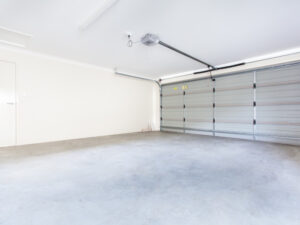Colorado’s unpredictable weather and active lifestyle necessitate reliable garage door functionality. But faulty garage door openers pose more than just an inconvenience; they can present serious safety hazards for you and your loved ones. Let’s delve into the potential dangers and equip you with the knowledge to ensure your garage door remains a safe haven.
Understanding the Potential Hazards of Faulty Garage Door Openers
-

Ensure safety with reliable garage door openers – learn about common risks and maintenance tips Unintended Closing: Imagine getting trapped under a descending door due to malfunctioning garage door openers. This scenario, unfortunately, isn’t just a hypothetical risk. Faulty sensors, wiring issues, or mechanical problems can cause the door to close unexpectedly, leading to potential injuries.
- Pinching and Crushing: Worn-out springs, broken cables, or malfunctioning opener mechanisms can cause the door to move erratically, increasing the risk of fingers, hands, or even pets getting caught and crushed.
- Security Breaches: A compromised opener or outdated technology can make your garage an easy target for break-ins, jeopardizing your property and safety. Hackers can exploit vulnerabilities to remotely access your opener, granting them entry to your home.
- Carbon Monoxide Poisoning: If your garage door opener is linked to an attached car, neglecting its maintenance can lead to carbon monoxide leaks due to faulty exhaust systems. This odorless gas can be deadly if undetected, highlighting the importance of regular inspections.
Identifying and Addressing Safety Risks:
- Regular Inspections: Schedule annual professional inspections by qualified technicians to identify potential issues before they escalate. These experts can assess opener functionality, spring tension, sensor alignment, and overall system integrity.
- Heed the Warning Signs: Don’t ignore strange noises, jerky movements, slow operation, or unresponsive buttons. These are all red flags indicating potential problems that require immediate attention.
- Upgrade Outdated Systems: Older garage door openers might lack important safety features like automatic reversal upon encountering an obstacle. Consider upgrading to a newer model equipped with modern safety technology for enhanced peace of mind.
- DIY with Caution: While some minor repairs might seem manageable, tackling complex electrical or mechanical issues without proper expertise can worsen the problem and expose you to unnecessary risks. Leave technical repairs to qualified professionals.
- Invest in Security Measures: Opt for openers with rolling code technology and secure PIN access to prevent unauthorized access. Consider reinforcing your garage door itself with sturdy materials and reliable locks.
- Carbon Monoxide Detection: Install carbon monoxide detectors in your garage, especially if they’re attached to your living space. Regularly test and maintain these detectors for optimal protection.
Garage door safety is not an option; it’s a necessity. By understanding the risks and taking proactive measures, you can ensure your Colorado home remains a safe haven for you and your loved ones. Don’t wait for trouble to strike; prioritize regular maintenance, address concerns promptly, and invest in a safe and reliable garage door opener system.
